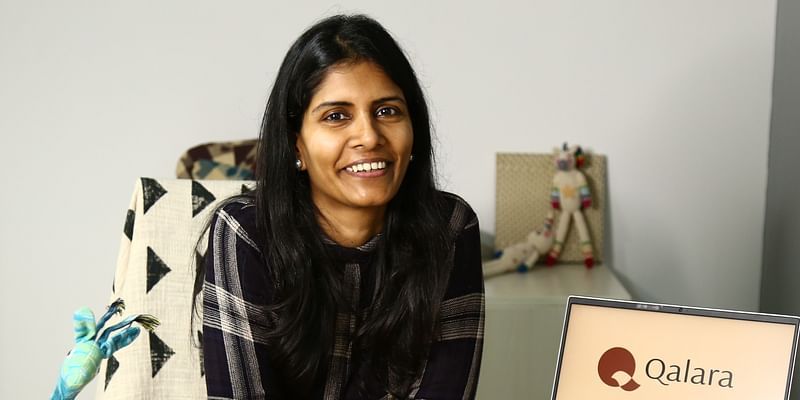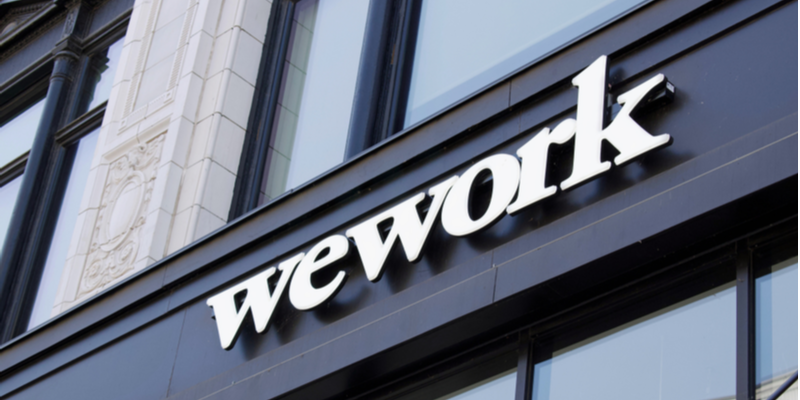This woman went from being a Reliance employee to an entrepreneur funded by it
Aditi Pany is the Founder and CEO of Qalara, a Bengaluru-based startup that offers a wholesale ecommerce marketplace for small businesses to export across the world. The startup is backed by the Mukesh Ambani-led Reliance Industries Ltd (RIL).
Aditi Pany was an “idealistic student” at the Birla Institute of Technology and Science (BITS), Pilani, at the turn of the millennium. A student politician, she was one of the few who went into the social venture space, right out of Pilani, graduating in 2005.
She reminisces, “We were enabling education in rural areas in the middle of Orcha, Chambal Valley, in fact, and then went on to work with Ashoka, which is the world's largest network of social entrepreneurs.
And at the time, while I was inspired and amazed by the work that social entrepreneurs did, the question that always plagued me was: ‘How do you scale this? How do you scale the impact of individual entrepreneurs or social entrepreneurs?’”
Aditi realised that she must figure that from within organisations and businesses that have scaled and to do that, she must first get an MBA degree and join a large company. So she went on to get her degree from no less than the prestigious Stanford University on a Reliance Dhirubhai Fellowship. The fellowship programme created by the $150 billion conglomerate RIL led by India’s richest man Mukesh Ambani, supports students from India who are in need of financial assistance to pursue an MBA at Stanford.

Mukesh Ambani-led RIL has backed Aditi's startup, Qalari
Aditi came back to India and joined Reliance Retail, RIL’s omnichannel lifestyle retail chain in 2011. By 2015 she had become the Chief Operating Officer (COO) at AJIO, Reliance Retail's first pan-Indian ecommerce venture.
Last year, she decided to turn entrepreneur with Qalara, a Bengaluru-based startup that offers a wholesale ecommerce marketplace for small businesses to export across the world. The startup is a “completely Reliance-backed entity.”
“I think I’ve been very fortunate, from an employee to an investee. And I think also for the business, it's incredible, right? So much synergy to leverage from a company like this from a company that that I have been part of, that I know and understand.
“I have on the board people who I have a lot of respect for, whose brains I can pick when I want to, when I'm trying to solve certain problems, (these are people) who have built large scalable businesses themselves,” Aditi tells YourStory Founder and CEO Shradha Sharma.
Empowering small businesses
With her startup, Aditi has stayed true to her resolve of helping individual and social entrepreneurs scale their businesses. “Qalara is simply put, a wholesale ecommerce marketplace that enables small producers, manufacturers, SMEs (small and medium enterprises) from India, and also across South Asia, Southeast Asia, to export to small to mid size to even large wholesale buyers around the world. And for both parties to effectively do business in a way that is convenient and reliable,” she explains.
The Bengaluru startup acts as an intermediary platform, enabling mutual discovery between the seller and buyer, facilitating actual commerce on it. It takes care of the end-to-end supply chain from the producer till the buyer, “anywhere in the world.”
Currently, the startup’s primary focus is on home and lifestyle categories such as home textiles, furnishings, home decor, furniture, fashion accessories and jewellery, and wellness products. But it intends to be a ‘category agnostic’ platform.
Aditi elaborates, “We intend to venture into any category that we believe this part of the world has a manufacturing edge in. We will do both finished goods as well as intermediary materials, like fabrics, essential oils, and so on. Our intention is not to be a niche player. Our intention is to build a large scalable platform and contribute to global trade from this part of the world.”
What’s under the hood
The startup uses OpenStack, an open source cloud computing infrastructure, to help calculate in real time a landed price for a small business buyer by “determining freight and duties in real time seamlessly in a checkout flow.”
Typically, every country has a different taxation structure for different materials and different products; Qalara helps accurately estimate those costs. By doing that it enables the supplier to quote the right price, while also helping the buyer to understand the actual end-to-end cost, so that they’re able to then price it for retail, with the desired margins.
Aditi says, “We want to simplify cross-border pricing, it should be as easy as doing B2C(business-to-consumer) commerce.”
China’s Alibaba, and more recently, San Francisco-based Faire are two cross-border wholesale ecommerce platforms that achieved scale in the space, something Aditi hopes to emulate. “One thing that I learnt at Reliance is that scale solves a lot of problems. So the endeavour is always to scale,” she says. With around 35-40 employees, it’s still early days for the startup, Aditi adds, while highlighting that the market opportunity is “sizable.”
Watch the full conversation here:
She points out that in lifestyle categories in retail, the market is worth well over a trillion dollars. “So even if you were to take 40 per cent of that, it's over $400 billion. If you look at B2B (business-to-business) cross-border commerce, which of course encompasses a much wider variety of industries, again, over a trillion dollars, right?
“If you look at sub categories that are traditionally exported from India, each category will be, you know, billions of dollars. So the way I looked at it is that it was a sizable market, any which way you slice it.”













